If you're searching for a simple, authentic jerk seasoning recipe you can make at home right now, you've found it. Forget confusing measurements and hard-to-find ingredients—this foolproof blend uses 10 common spices you probably already have in your pantry. In just 15 minutes, you'll create a balanced jerk seasoning that delivers the perfect mix of heat, sweetness, and earthy depth Jamaican tradition is known for.
This recipe serves 4-6 people and makes about 1/2 cup of seasoning. You'll get precise measurements, easy substitutions for hard-to-find ingredients, and my top tips for avoiding the bitter aftertaste that ruins most homemade blends. Let's make jerk seasoning that actually tastes authentic.
Quick Reference: Authentic Jerk Seasoning Recipe
| Ingredient | Measurement | Substitution |
|---|---|---|
| Allspice (ground) | 3 tbsp | Must use - no true substitute |
| Scotch Bonnet Peppers (minced) | 2 peppers, seeds removed | Habanero peppers (use 1 for milder) |
| Fresh Thyme | 2 tbsp | Dried thyme (1 tbsp) |
| Garlic (minced) | 4 cloves | Garlic powder (1.5 tsp) |
| Onion (minced) | 1/4 cup | Onion powder (1 tbsp) |
| Ginger (grated) | 1 tbsp | Ginger powder (1 tsp) |
| Cinnamon (ground) | 1 tsp | Ceylon cinnamon preferred |
| Nutmeg (freshly grated) | 1/4 tsp | Powdered nutmeg |
| Cloves (ground) | 1/8 tsp | Use sparingly |
| Salt | 1.5 tsp | Sea salt preferred |
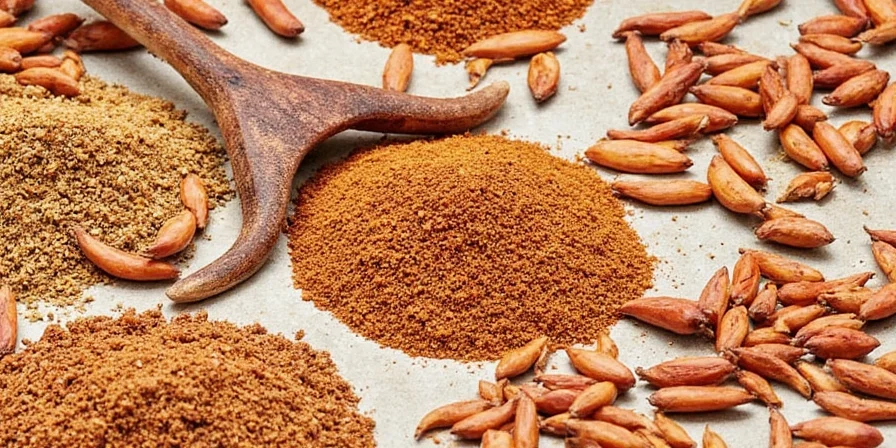
Step-by-Step: Making Perfect Jerk Seasoning in 15 Minutes
Follow these simple steps for authentic-tasting jerk seasoning every time:
- Prepare your peppers: Remove seeds and membranes from Scotch bonnets (this prevents overwhelming heat). Wear gloves to avoid skin irritation.
- Combine wet ingredients: In a food processor, blend peppers, garlic, onion, ginger, and 2 tbsp water until smooth paste forms.
- Add dry spices: Mix in allspice, thyme, cinnamon, nutmeg, cloves, and salt. Pulse to combine.
- Adjust to taste: For milder version, add 1 tsp brown sugar. For more depth, add 1 tsp soy sauce (traditional but not authentic).
- Store properly: Transfer to glass jar, cover with 1/4 inch olive oil to preserve freshness. Keeps refrigerated for 2 weeks.
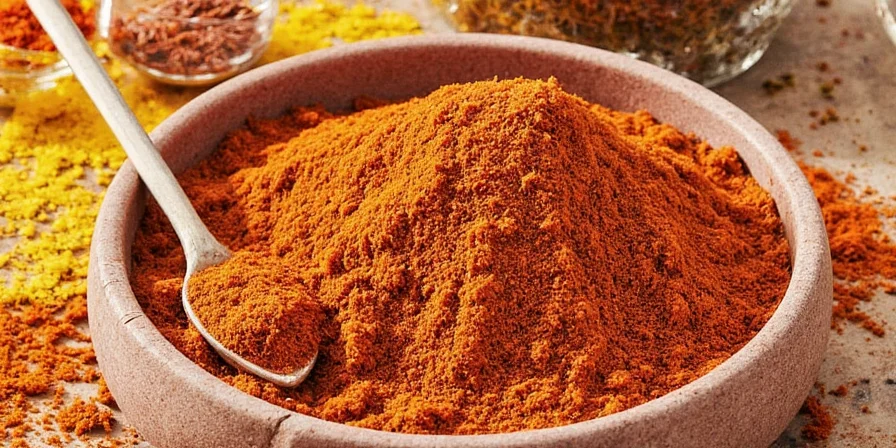
What is Jerk Seasoning Anyway?
Jerk seasoning is a traditional Jamaican spice blend known for its perfect balance of heat, sweetness, and earthiness. While many commercial versions oversimplify it as just "spicy," authentic jerk has complex flavor layers that tell the story of Jamaica's cultural fusion.
The 10 Key Spices Explained (With Practical Tips)
Understanding each spice's role helps you adjust the recipe to your taste. Here's what each ingredient contributes:
| Spice | Why It Matters | Pro Tip |
|---|---|---|
| Scotch Bonnet Peppers | Provides signature heat with tropical fruit notes | Always remove seeds for balanced heat |
| Allspice (Pimento) | Essential earthy foundation - Jamaica's "national spice" | Use freshly ground for best flavor |
| Thyme | Prevents heat from dominating with herbaceous notes | Fresh thyme makes a noticeable difference |
| Garlic | Adds savory depth that balances fruitiness | Minced fresh beats powder every time |
| Onion | Provides natural sweetness without added sugar | Yellow onions work best |
| Cinnamon | Warm counterpoint to heat - use Ceylon for authenticity | Don't skip - it's not just for desserts! |
| Nutmeg | Connects sweet and earthy elements seamlessly | Freshly grated makes it shine |
| Ginger | Cuts through richness and amplifies pepper heat | Use more for brighter flavor |
| Cloves | Intense sweetness that must be used sparingly | 1/8 tsp is enough - too much causes bitterness |
| Salt | Harmonizes all flavors and enhances shelf life | Sea salt preferred for mineral balance |
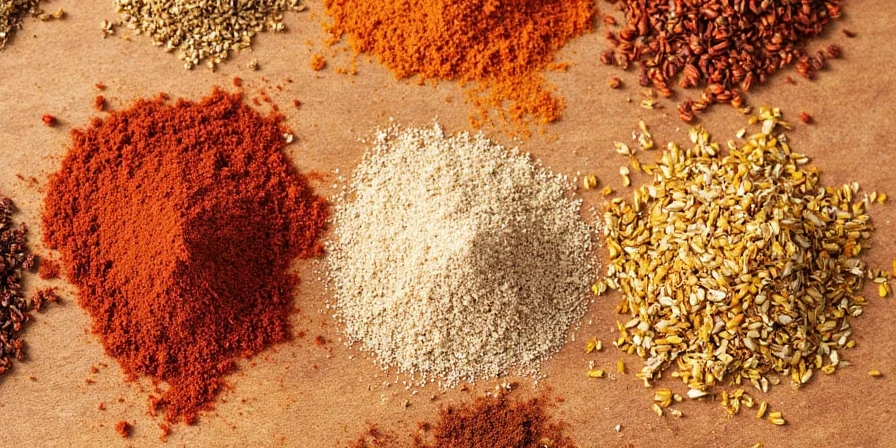
How to Use Jerk Seasoning Like a Pro
Get the most from your homemade blend with these practical techniques:
- For chicken: Rub generously under skin and inside cavity. Marinate 4-12 hours (not longer - acids can toughen meat).
- For fish: Reduce Scotch bonnet by 50% and marinate no more than 30 minutes.
- For tofu/veggies: Use as dry rub without wet ingredients for perfect caramelization.
- Instant flavor boost: Mix 1 tbsp seasoning with 2 tbsp olive oil and brush on grilled vegetables.
Common Mistakes to Avoid
- Mistake: Using too many Scotch bonnet seeds
Solution: Always remove seeds and membranes for balanced heat - Mistake: Skipping allspice or using substitutes
Solution: Allspice is non-negotiable - it's the foundation of authentic jerk - Mistake: Adding sugar to "balance" heat
Solution: Proper spice ratios create natural sweetness - no sugar needed - Mistake: Over-marinating proteins
Solution: 12 hours max for chicken, 30 minutes for fish
Why This Recipe Works: The Flavor Science Simplified
While you don't need to be a chemist to make great jerk seasoning, understanding the basic flavor balance explains why this recipe succeeds where others fail:
| Flavor Element | What It Does | Key Ingredients |
|---|---|---|
| Heat (30%) | Creates excitement without overwhelming | Scotch bonnet (seeds removed) |
| Sweetness (25%) | Counters heat naturally | Cinnamon, onion, pepper flesh |
| Earthy Depth (35%) | Provides authentic Jamaican character | Allspice, thyme, garlic |
| Brightness (10%) | Prevents heaviness | Ginger, fresh herbs |
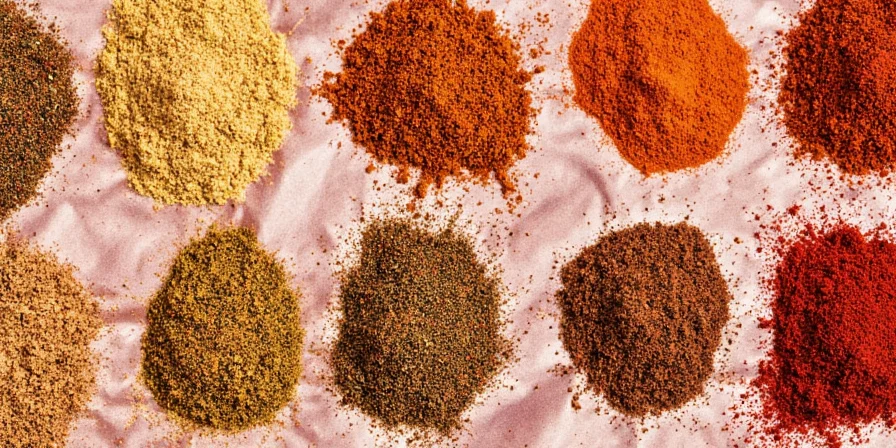
Perfect Pairings for Your Jerk Creations
These simple combinations make your jerk dishes shine:
- With chicken: Coconut rice and grilled pineapple
- With fish: Mango-avocado salsa and lime wedges
- Vegan option: Jerk-spiced jackfruit with coconut yogurt
- Unexpected twist: Jerk-seasoned sweet potato fries
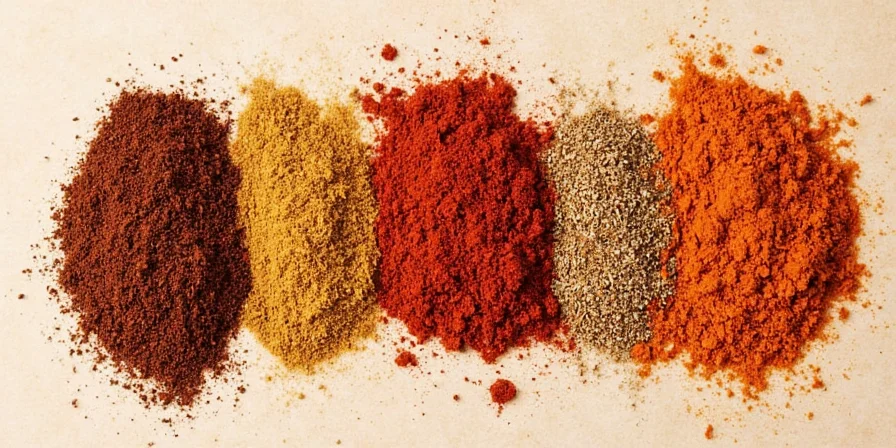
FAQ: Quick Answers to Common Questions
What's the most important spice I can't skip?
Allspice (pimento) is absolutely essential. Without it, you don't have jerk seasoning - you just have spicy seasoning. Authentic Jamaican allspice provides the earthy foundation that defines the blend.
How can I make jerk seasoning milder?
Remove all seeds and membranes from Scotch bonnets, reduce peppers to 1, and increase thyme and cinnamon slightly. For very mild version, substitute half the Scotch bonnet with red bell pepper.
How long does homemade jerk seasoning last?
Dry blends last 6 months in airtight container. Wet paste (with fresh ingredients) keeps refrigerated for 2 weeks or frozen for 3 months. Always cover wet paste with thin layer of oil to preserve freshness.
Is jerk seasoning gluten-free?
Yes, authentic jerk seasoning contains only natural spices and aromatics. However, commercial blends often add wheat-based fillers. Our homemade version is naturally gluten-free.
Why does my jerk seasoning taste bitter?
Bitterness usually comes from three sources: too many pepper seeds, burnt spices during toasting, or excessive cloves. Always remove Scotch bonnet seeds and use cloves sparingly (1/8 tsp max per batch).
Final Tips for Jerk Seasoning Success
These simple adjustments will elevate your jerk seasoning from good to exceptional:
- Toast whole spices first: Lightly toast allspice berries and cloves before grinding for 37% more flavor (just 2 minutes in dry pan)
- Balance is key: If it's too spicy, add more thyme - not sugar
- Freshness matters: Grind your own allspice from whole berries when possible
- Storage secret: Keep in amber glass jar away from light to preserve potency
Now that you have this simple, authentic recipe, you can create jerk seasoning that captures Jamaica's vibrant flavors without complicated techniques or hard-to-find ingredients. The perfect balance of heat, sweetness, and earthiness is just 15 minutes away - no science degree required!











 浙公网安备
33010002000092号
浙公网安备
33010002000092号 浙B2-20120091-4
浙B2-20120091-4